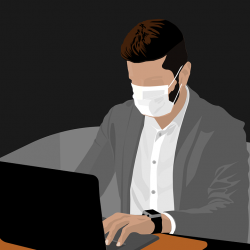To provide the best experiences, we use technologies like cookies to store and/or access device information. Consenting to these technologies will allow us to process data such as browsing behaviour or unique IDs on this site. Not consenting or withdrawing consent, may adversely affect certain features and functions.
The technical storage or access is strictly necessary for the legitimate purpose of enabling the use of a specific service explicitly requested by the subscriber or user, or for the sole purpose of carrying out the transmission of a communication over an electronic communications network.
The technical storage or access is necessary for the legitimate purpose of storing preferences that are not requested by the subscriber or user.
The technical storage or access that is used exclusively for statistical purposes.
The technical storage or access that is used exclusively for anonymous statistical purposes. Without a subpoena, voluntary compliance on the part of your Internet Service Provider, or additional records from a third party, information stored or retrieved for this purpose alone cannot usually be used to identify you.
The technical storage or access is required to create user profiles to send advertising, or to track the user on a website or across several websites for similar marketing purposes.
 Over half (52 percent) of UK workers think we will see a “reverse brain drain” of talent migration away from big cities like London and Manchester towards regional areas as a result of COVID-19, according to latest research from the Adecco Group UK and Ireland. (more…)
Over half (52 percent) of UK workers think we will see a “reverse brain drain” of talent migration away from big cities like London and Manchester towards regional areas as a result of COVID-19, according to latest research from the Adecco Group UK and Ireland. (more…)






 With current government advice encouraging all those who can work from home to do so, it’s no surprise that Britain’s businesses and employees are navigating a new normal. New research from
With current government advice encouraging all those who can work from home to do so, it’s no surprise that Britain’s businesses and employees are navigating a new normal. New research from 










 While city centres are taking time to recover, there’s better news elsewhere, suggests
While city centres are taking time to recover, there’s better news elsewhere, suggests 














October 28, 2020
It`s not just businesses that need to wake up to changes in the way we work. Governments do too
by Jeremy Stein • Comment, Workplace design